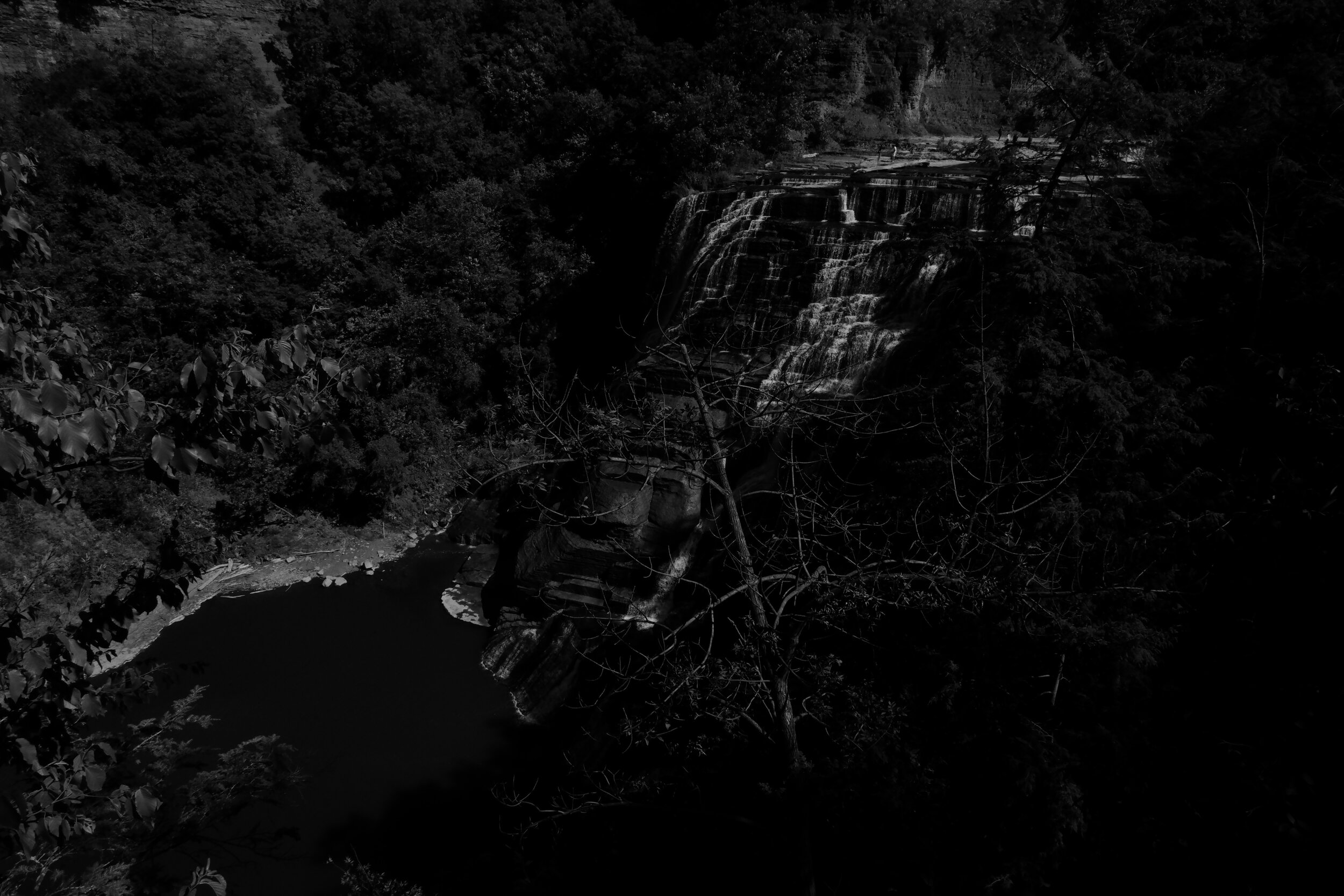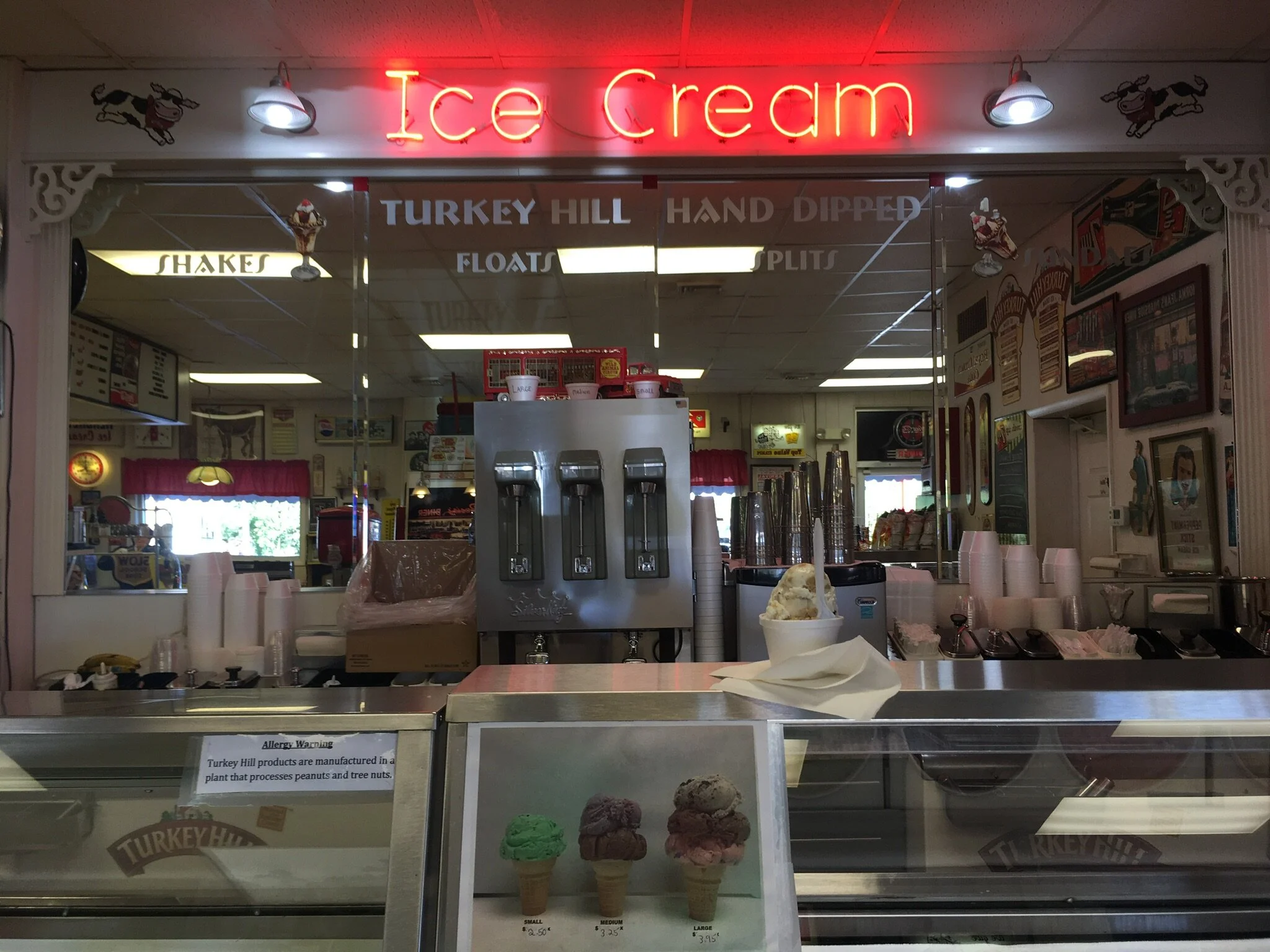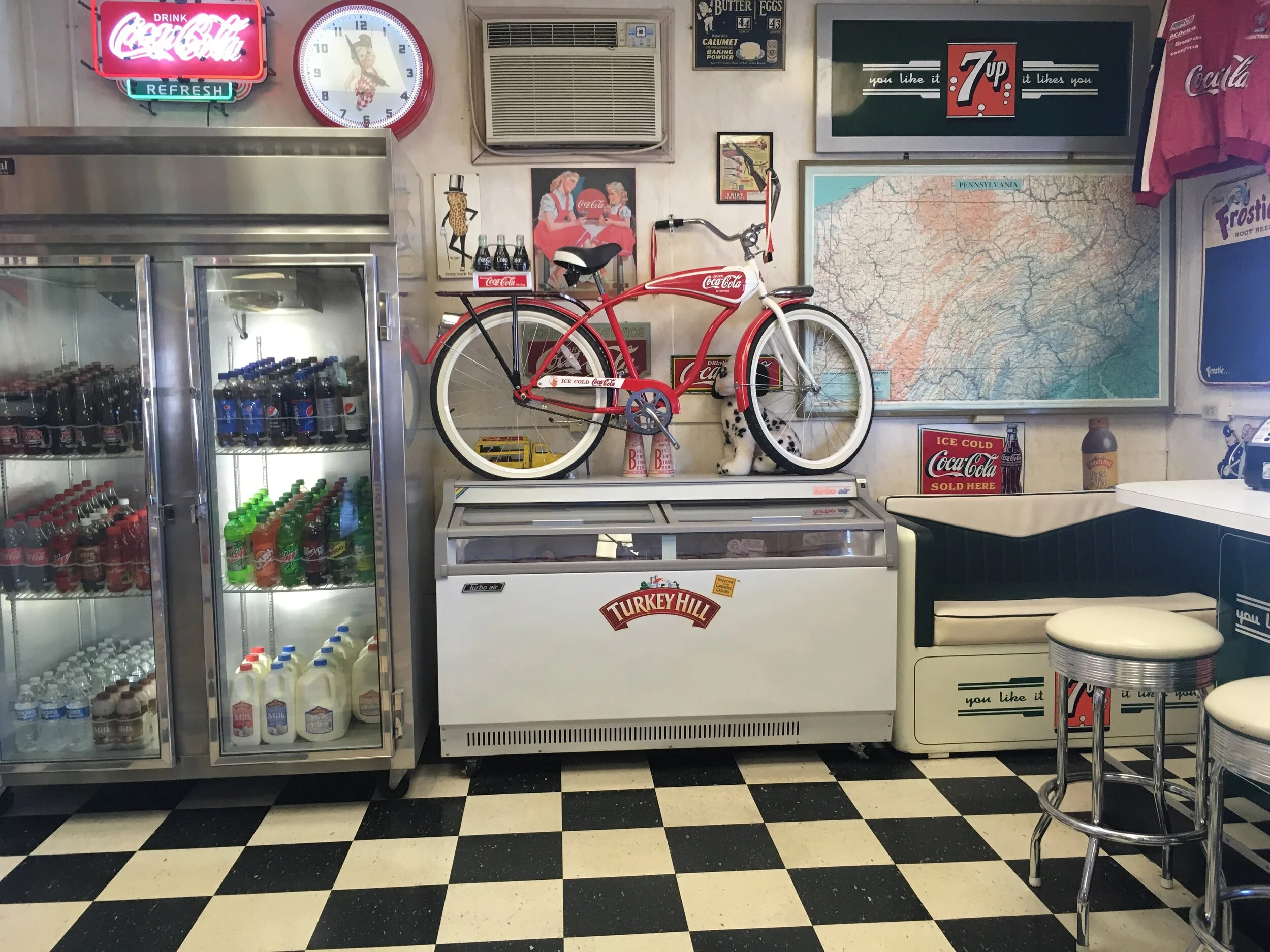Week 6 with Dakota
Ithaca, a place I visited in a dream and left far before I was ready.
Across from our road is an ugly plot of land that’s been cleared for a new housing development. The land had been part of a big government secret, something to do with animals and testing and chemicals. They left the plot abandoned for years, let nature and time do its thing. One worked on the land, taking over the parts where a building once stood, and the other worked on the memories of those who knew what the land was once used for. And when the work of both was finished, the favor was all undone, and the houses rose. It seemed that each week, another house appeared from the grey dirt. It’s a sight you’d rather not turn to on the way home. But by chance, on my drive out one day, I noticed a young man sitting on top of an unfinished roof. He was facing the other way, his back to the road, his gaze on the far line of trees. All this ugly, and right there was a man with his head turned away from the work he’d spent the better part of his day on, just staring at the parts of his surrounding that was as far removed from the job as he was at that moment.
It must have been the end of his shift. I stopped the car in the middle of the road. I had to take it in, to remember, how even here, between the terrible replicas they call houses, was the setting sun, the coming fog, the man on the roof.
By no coincidence, a week later on my way up to New York, I drove by another house, and there, on the roof, above all the fuss of remodeling, was a man, staring at the kinder view from above.
Clocking In
It is a Monday night. I am writing this late, too late. There is so much to write, which means I’ll end up writing very little. All of it wants to come out. Only parts of it will manage.
It was my first week at a new job. I haven’t been tied in over a year. Doesn’t matter what job it is, only that it’s a place I have to show up to at a certain time, stay for a certain number of hours, and answer to someone else’s orders, however kind that someone is. I should be grateful. Instead, I am furious in having to let go of my freedom. It seems that I either have all the time in the world and no money, or all the money and no time. I hate always having to choose. But if I am being honest with myself, I wasn’t doing what I really wanted to even when I had the time, and it seems that only when time becomes precious, when it lands in the hands of someone else and I suddenly become very possessive of it, do I admit that the issue has hardly ever really been with time. It’s scary, to know it’s something else. I knew that meant it was something inside me that was responsible for all that wasn’t getting done. Sure, external factors help, or make it harder, but ultimately, they play a very minor role. An artist who insists on making will make. But we as artists are fortunate in having many excuses at our disposal to hang the blame on. We hardly, if ever, say this: we’re damn scared.
Other writers far more competent than I have spoken against this fear. They’ve rallied against it, tried to define it, to justify it and pardon its victims, but ultimately, none of it matters. What matters is that it exists, and that to be free of it comes at a great cost, a cost most of us can’t afford for lack of energy, support, faith, or all three.
What matters is that I wasn’t doing the writing for reasons that had nothing to do with the excuses I’ve rehearsed and recited far too many times. It’s not time, it’s not the country, the headaches, the endless list of errands. It’s not the job I have to get out of or the the job I have to get. It is simply that I cannot face the page anymore. I cannot bare the effort. And as time has passed, and more has happened, more pain, more events, more truths discovered, there’s become so much more to write about, too much in fact. Because I’ve stalled all this time, I find too much is trying to come out at once, as if to punish me for my previous silence and inadequacy. The thoughts in me are like a desperate crowd trying to push through an entrance at once. All want to get through, hardly any of them can. It’s too much pushing, too many people harboring a sense of urgency. Each wants to enter the page. Each one thinks itself the most necessary, the most in need of tending to. I try to slow it down, to care for one while promising the others that with time, their turn will come. But more often than not, it’s a useless effort and I end up wanting to say everything at once.
A Disappointing Confession
I feel the need to harbor a sense of importance. Maybe it is precisely the need to kill this destructive need that fate delivers me into the kind of situations that succeed in doing just the opposite. I tend to land the most anonymous and exhausting jobs, jobs that really wreak havoc on any sort of pride. Most recently, I’ve been changing diapers, reading the same children’s book 10 times a day, cutting peanut butter and jelly sandwiches into squares, teaching a four year old all about the importance of lines and staying within them as she colors and paints. At times, the ridiculousness of it all hits me, and I find the time we spend in the dirt outside, the shortest part of the day, to be the only part that spares me from going mad. I hate their schedule for all that it reminds me of, and I hate myself for playing part in the very thing that’s been taking me years to undo. I want them to eat outside in the grass, to go out barefoot, to paint on things they aren’t supposed to paint on, to know more than the cul-de-sac outside their house. I am also in the humbling and desperate position of needing money, again. And besides, I tell myself, their mother would only find someone else to take care of the kids if I strayed too far. So I say, for the sake of quieting the guilt.
But it is true, I admit it. I need to feel important. I have always felt this need. I never thought of it as anything terrible before, but when it comes to art, it feels like the biggest sin an artist could commit. The reason why I say this is because ultimately, it destroys the art. To harbor a need to feel important is to destroy the artist inside, slowly, until one day you look down at your hands and they can’t do any honest work anymore. You wonder why. You blame god, blame the city, your bad luck, your foggy mind, but I believe what’s to blame is this need, this crushing, fatal need that —damn it, I can’t seem to get rid of!
Then, maybe there is a difference between the need to feel important and the need to feel heard. I don’t think it’s a terrible thing for an artist to want to feel heard, but I worry about what’s censored or changed in the desire to be listened to, because there’s a whole lot of truth and ugly that very few can bare hearing. Ultimately, what is it? Why do I write? Why do I ware myself out before the page trying and trying and trying?
I think it’s only to feel a bit more free than when I first sat down. I want to rise a freer woman than the one who began an hour ago. And there is no freedom without a working outlet.
I’d like to think that now I know what it is I have to do, and, just as important, what it is I have to stop doing. But knowing doesn’t do much. I have to make something of it all, but there can be no movement if I can’t pardon myself for having this urge that I consider to be the greatest sin an artist can commit. There is good reason for it after all. I was treated very cheaply as a child, shuffled endlessly and erratically from house to house, following the selfish impulse of every adult that took part in caring for me. I was hardly ever listened to, that is, in the rare occasion I found the courage to speak. Perhaps if this need was answered earlier, where and when it mattered most, I wouldn’t feel it so terribly and toxically now. Still, I need to discard it and embrace anonymity, embrace the process and not the outcome, then the product and not the chances of its success.
It is so easy to declare it in writing. But it is a habit as engrained in me as all my other habits. It is always there, always present. What gives me hope, however, is that I’ve managed before, however rarely and briefly, to lose myself enough to a point where none of it mattered, and I was writing without the ever present audience before me. I was writing from Aiyah, to Aiyah, and from those rare instances came the best writing I’ve written, and I say best for its truth, its beauty, its total disregard for the imagined response of an imagined audience. In fact, sincerity in poetry, more than any other form of art (and maybe this is why many find poetry to be the hardest of them all) is so obvious and necessary that even a hint of untruth is so easily and brutally exposed. A poem only fails for its dishonesty, for its effort to be a poem. Truth is the highest form of poetry. There are degrees of truth, as there are degrees of lying. The higher the degree of truth, the higher the quality of the poem. It is truth then, and not the need to be heard that should be urging me me to write, because in faithfully serving one, the other naturally follows. I could seek an audience without seeking truth, as many other artists have done, but I could not live with myself for it. It may be tempting now, but just imaging the dirty feeling I would have, for having lied my way to someone’s ear, to have taken a short cut rather than the longer, more honest path, it makes me want to wait and wait for however long it takes for the words to find their way to my hands, or for my hands to find their way to them.






